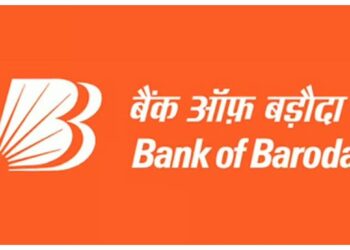Business owners borrow loan from financial institutions to overcome from financial weakness or setup business units. While going forward, entrepreneur faces many challenges granting business loan in India. Factors which affects overall loan processing and approval should be checked before applying any type of business loans in India. To understand the process more deeply, I am in an exclusive discussion with Mr. Ranjit Punja, Co-founder at CreditMantri. We discusses both lenders perspective and borrowers perspective, by following these steps, business owner could found suitable loan for their business and how they can easily avail it.
CXO VOICE : First, let’s understand, what type of business loans are available to SMBs and Enterprises in India?
Ranjit Punja: Business loans for both long-term and short-term requirements are available in India. For long-term plans, one can avail assistance such as business expansion and for short term ones, one can avail assistance for working capital needs. There are many customized solutions that offered as well depending on the need of the seeker.
CXO VOICE: What are the important factors an entrepreneur should check before applying for business loan?
Ranjit Punja: Business loan, or any type of loan for that matter, requires a proper due diligence in India. First, an entrepreneur should understand the purpose of applying for a loan, i.e. why they want the loan and where they are going to use it. It helps in narrowing down the loan amount required to accomplish that very purpose. If the purpose is not clearly thought of, the loan amount could either be lower than the required, in which case it won’t accomplish the purpose; or it could be higher, in which case it could be difficult to repay.
Speaking of repayment, the cost of the loan is also imperative to consider. It includes interest rate, processing fee, documentation fee, and all the other charges. Cost, along with the time required to disburse the loan, is a crucial factor to consider while availing a business loan. The factor that contributes the most to the repayment terms is one’s Credit Score. With a good credit score of above 750, one can get the most favorable terms on their business loan, which would help them to repay the loan easily. So, it is always advisable to maintain a good credit score.
One more important thing to consider is collateral. Since most banks demand a security from the borrower for the business loan, it is important to think about the collateral beforehand. The collateral could be any asset, equipment, or even future revenue of the business. So, it should be properly thought about as to what would be the suitable collateral to pledge against the loan, for if the loan is not repaid, there is a big chance of losing it. Some NBFC’s don’t need the borrower to pledge any collateral, so if a person has no collateral, these NBFC’s could be the way to go.
- Read More: Major Technology Acquisitions of 2018
CXO VOICE : What are the major differences between Mudra and Business loan in India? Which one is more beneficial for entrepreneur?
Ranjit Punja: As the name suggests, Mudra loan is explicitly provided to micro and small businesses, whereas a business loan can be given to any business and for any purpose, be it to start a business or improve it.
Since there is government backing for Mudra loan, the interest rate charged is generally lower than a typical business loan so as to encourage the environment of entrepreneurship within the country. Moreover, there is no collateral required for Mudra loan. Hence, a budding entrepreneur could avail the loan of up to Rs. 10 Lakhs with no collateral. On the other hand, business loan may or may not need collateral. This protocol varies from lender to lender. Also, there is no limit on the amount that can be availed.
Which one is more beneficial for an entrepreneur- Both of the loans have their pros and cons. If one is a budding entrepreneur with micro or small firm in the need of a small amount, Mudra loan could be the right option as the interest rate is lower and no collateral is required. But, if one is aspiring to improve their business or require very huge funds for their business, business loan could be the way to go.
CXO VOICE : I would like to understand effects of digitization and technology advancement on overall loan processing?
Ranjit Punja: It has changed the entire dynamic of the loan processing, both from the borrower and lender’s perspective. The prospective borrower can check their credit score online and find the best loans for their credit score. Hence, it has drastically increased the chances of one’s loan approval and the best thing is, this won’t be counted as a hard enquiry. So, they can check their credit score regularly and find the best credit lines without affecting their credit score at all. Also, since the process is done online, the documentation required has reduced, and so has the processing and disbursal time of the loan.
From the lender’s perspective, they are able to match the credit profile of the prospective borrowers with their criteria and can gauge the right loan for every borrower.
CXO VOICE : What is most adequate way to apply for business loan in India?
Ranjit Punja: While applying for a business loan in India, one often looks for minimal documentation and low processing time. These are the two factors that make it convenient for someone to apply for a loan.
It has indeed become substantially easier with the implementation of digitization to apply for loans. While applying online, the loan could be disbursed within hours with very minimal effort from the borrower. Moreover, borrowers could also compare different loans at the same time to choose the one that’s best for them.
CXO VOICE : 5 major factors, India’s bankers consider before granting business loan?
Ranjit Punja: Like the borrowers, banks too like to assess all the necessary details about the borrower before underwriting any loan to them. Some of the factors include:
- Business Capacity: Banks need to be certain that the loan they are underwriting would be repaid. So, they check the revenue of the business in order to assess how much loan should be granted.
- Purpose of the loan: Banks want to know where the loan amount will be utilized by the borrower.
- Capital: If the borrower has already made some of their own investment into the business, banks would feel more comfortable, as it displays that the owner is also willing to lose something in case the business fails.
- Collateral: If the business actually fails, the banks would need some avenue to get their money bank. So, they require the borrower to pledge something, be it an asset, equipment or firm’s revenue, as security, which would be used to get the loan amount back in case the borrower fails to repay the loan.
- Credit Score: Since business loan availed from banks is a secured loan, banks can use the collateral in case of on-repayment of the loan. But, to get the best repayment terms on the loan, they check the credit score of the borrower. The higher the credit score, the better repayment terms the borrower gets.
CXO VOICE : What are the challenges entrepreneurs/ business faces while seeking business loan in India?
Ranjit Punja: Deciding on the specific purpose and the loan amount required to accomplish it is the biggest challenge one has to overcome. The loan amount should be adequate to get the job done, while not make it difficult for the borrower to repay. So, the collateral/revenue stream to repay the loan is also a necessary element to think about, which many have difficulty in doing so.
Maintaining a good credit score is another challenge in itself. Since credit score is the primary tool used to determine the eligibility and repayment terms, one has to have a good credit score at all times. To maintain it, one has to show a responsible credit behavior over an extended period of time without making any defaults.
CXO VOICE : What further options entrepreneur has if bank denies their application?
Ranjit Punja: If one is denied business loans form banks, there are other avenues they can try. NBFC’s are the most suitable alternative. They require less documentation than the banks and the loan processing may be faster. But the loan amount may be lower than what banks grant and the interest rates charged could be higher.
Government loans like Mudra could also be a good option if the business is very small and the loan amount required is below Rs. 10 Lakhs.
In both the above cases, one still has to do a proper due diligence to get the loan best suitable for their needs.




















